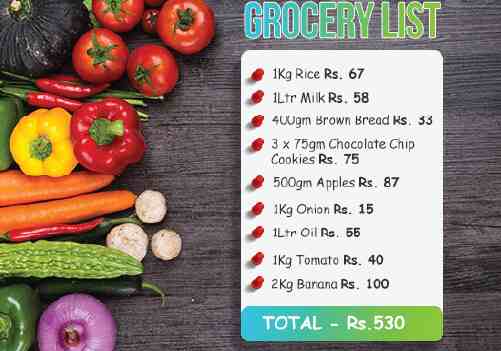
Math is ubiquitous. That’s encouraging news to all parents, as this gives them ample opportunities to discuss Math in natural fun ways. Such candid Math moments go a long way in creating a favorable image about the subject, instilling deep love and appreciation for Math and answers all your queries about how to make maths interesting for primary students. Numerous studies have pointed to the fact that a child’s math skills during its formative years are a clear predictor of future academic success, as compared to reading skills, social skills or the child’s ability to focus.
Parents can give a head start to children at home, by introducing to them, simple Math concepts like measuring & counting at a very young age and by helping them in seeing the relevance of the subject, in their everyday lives. Their experiences at home will spark an interest for the subject and develop a level of familiarity, giving them a clear edge, when they enter school.
Unlock Your Child's Math Potential with beGalileo!

🚀 Transform their math skills with personalized, 1-on-1 classes.
🧮 Experience integrated math and coding for real-world application.
👦 See your child excel—start with a Free Trial Math Class today!
Create a positive attitude about Math
Attitude has everything to do with learning. Parents’ perception about Math can highly influence their child’s perception too. It is critical that the parents enjoy talking about it in a positive light. To ensure that your child is aware of your thinking process, always think out loud and demonstrate the fact that there are multiple ways to solve a problem. While most of the parents seem to understand the importance of reading out to children, not many appreciate the significance of introducing Math applications, early on.
Can parents really create a thriving atmosphere for Math learning, at home?
How to make Maths interesting? Parents can achieve this by putting in conscious effort and time, in the right direction. Worry not, here are a few fun ways of integrating Math into your child’s daily routine at home and make them love Math:
Create real life Math contexts
Help your child to visualize Math application in daily contexts, to solve real-life problems: how many tablespoons make quarter cup of ghee? Can you sort your bangles by colour? How will you ensure a fair share, if you will need to divide 8 cookies between you and your sibling?
Reinforce Math skills through Math games
Playing games is a fun way to develop math skills, and make real-life connections. Some of the games that induce interest in Math, like Snakes & Ladder, Monopoly, Chess, Rubik’s Cubes, Sudoku etc., can be introduced to the child, at an early age.
Build Mathematical literacy through objects
Encourage the child to use toys, products and gadgets around your home, that provide the opportunity to improve their mathematical abilities. Examples of a few, to get started can be a calendar, watch, globe or map, ruler or measuring tape, measuring cup, containers labeled with measurements etc.
Construct something together
Any activity that involves measuring includes counting, adding, and multiplying. It doesn’t matter whether you’re making a house using matchboxes, shoeboxes or actually building a tree house. Legos and other building toys are wonderful tools for incorporating both numbers and spatial thinking into playtime, in addition to learning the concept of shapes.
Weave Math into your bedtime reading
Most families read to their children at night. Why not add a math dimension to the mix? There are plenty of ways to keep kids thinking about math during bedtime – stories that involve counting, stargazing, to name a few.
Plan a road trip game
Engage your child on a road trip, by asking her to count the stop signs on the way or count the cars of a particular colour, while you’re driving. This will also keep you from counting the number of times you hear, “Are we there yet?”

Grocery Planning & Shopping
Enlist your child’s support in counting out the things you need at the grocery store. For example, “We need eight eggs, can you help me gather eight?” or “How many party packs of potato wafers will we need for the upcoming house party?” You may also try to let him pay, smaller amounts, for simpler household purchases.
Cook together
Cooking is an incredible way to put your child’s math skills to use, in the real world. If your child is just starting out, try writing out a really simple recipe, probably a fruit salad. Let him help you count 4 apples, 3 mangoes, 2 bananas, 1 watermelon etc. This will boost his confidence enormously.
Fun with patterns
Pattern play indirectly prepares children for math. You may take turns with your child in creating patterns on the beach sand; make patterns with stickers or by engaging in the door decor activity.
Guess…how many
Big numbers always fascinate children. Even a child that doesn’t care about counting to 20, she might be interested in knowing the number of stars in the sky, people on earth, and may want to research the answer together, hence making Maths interesting. Big numbers create a sense of wonder in children and spark their imagination.
In a Gist
By making math enjoyable, parents help kids associate math with fun, pleasure, parental love and personal attention. Instead of being intimidated, children will be excited about the subject, throughout their school years. Besides, please be informed that your child does not have to excel at math to enjoy it. It absolutely doesn’t matter if they’re good, what matters is whether they like it. The important thing is just to encourage your child to see the numbers all around them and to keep things fun. And, this is precisely how we’ll raise a next-generation that thinks Math is really cool!
The beGalileo way to instill love for Math
How does beGalileo make Maths interesting for students? beGalileo employs a holistic and customized approach to impart Math training, in a way that drives the love for Math in primary students. We combine the best of both traditional and technologically advanced methods, seeking to blend the online platform suitably with and complement the much-trusted personal interface. To get primary students genuinely appreciate Math and see it as ‘fun’, beGalileo employs a host of technology driven features such as interesting video lessons, board & computer games etc. in addition to personalized workbooks, online practice, tests & assessment. This online adaptive learning platform also incentivizes children with rewards & badges, while ensuring conceptual clarity. In short, beGalileo is every new generation child’s own personalized Math trainer and guide, employing the right mix of concepts and fun.
Read about success tips for students on beGalileo Blog and help your child learn math online on beGalileo – Math learning program.
